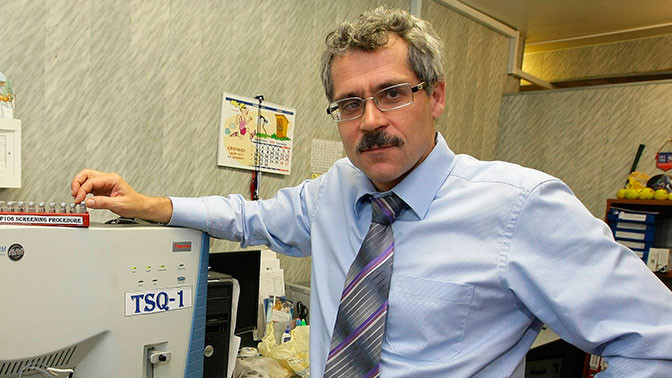
By Michael Pavitt |
Grigory Rodchenkov, the former head of Moscow’s anti-doping laboratory, has claimed the Rodchenkov Anti-Doping Act (RADA) can act as a “game-changer” in sport.
Named after Rodchenkov, the laboratory head-turned-whistleblower, the bill allows the United States to prosecute individuals for doping schemes at international sports competitions involving American athletes, broadcasters and sponsors.
The act gives prosecutors the ability to seek fines of up to $1 million and prison sentences of up to 10 years for doping conspirators.
Individual athletes who used performance-enhancing drugs would not be subject to criminal prosecution under the law.
The creation of an act was proposed earlier in 2018 by the Helsinki Commission, a US Government agency, following hearings covering the impact of doping in international sport.
RADA was passed by the US House of Representatives in 2019, before approval by the US Senate last year.
Former US President Donald Trump signed the act into law in November.
Concerns have been expressed by the World Anti-Doping Agency (WADA), which has argued the act could undermine the global anti-doping movement by placing international cooperation in jeopardy.
Rodchenkov appeared on the US Helsinki Commission’s monthly podcast Helsinki on the Hill via a secure line to discuss the legislation, with Rodchenkov still in an undisclosed location to protect his safety.
Rodchenkov said the law should be viewed as “new thinking” and not opposition to WADA, but rather WADA plus RADA.
He claimed the act would strike fear into those involved with doping ahead of the Tokyo 2020 and Beijing 2022 Winter Olympics.
“Immediately and now, it is a game-changer,” Rodchenkov said.
“Those people who were part of [the] conspiracy, they will tighten their security because of fear.
“I know people who are core of the doping system…they are very clever.
“They are very good.
“Now they have some sort of Damocles sword above their heads.
“It’s absolutely different feelings and style of life.
“You were untouchable and not vulnerable before.
“Now you are [the] victim.”
Paul Massaro, a policy advisor for the Helsinki Commission, said the act “redefines doping as fraud” and claimed it was among the “most important anti-corruption laws ever passed by Congress”.
Massoro told the podcast that the act seeks to find a loophole which can address structural elements responsible for doping, including Government officials, transnational criminals, coaches and administrators.
He added that it was important for US law enforcement to be ready to act on whistleblower reports, with investigators ready, especially around the Tokyo 2020 Olympic Games.
Massoro vowed that the Federal Bureau of Investigation (FBI) and the US Department of Justice (DOJ) would enforce the act “aggressively”, while promising to help whistleblowers who come forward.
“I was on a Hudson Institute event a few weeks ago where we had the head – the FBI’s head of the sport integrity unit,” Massoro said.
“And he called this law a huge hammer that they’re going to use to go after kleptocrats, corrupt officials, and criminal figures in sport.
“And I’ll tell you, every indication that the FBI and DOJ wants to enforce this aggressively _ very, very aggressively.
“And they do need whistleblowers.
“It’s not just in sport, I see this all over my portfolio.
“The only way investigations into kleptocracy, into sport corruption, into whatever are ever really made [are] via whistleblowers.
“So they really should step forward.”
Republished with permission from insidethegames.biz.